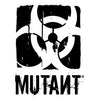The Surprising Reasons Why Cardio Helps Muscle Growth

Cardio kills your gains? False! That’s just what people who hate cardio say. Doing cardio actually benefits your muscle growth - as long as you do it right.
We’ve all gotta do things that are uncomfortable to get the results we want. Squeezing out one extra rep when you’re already tapped out, hitting the gym no matter how little sleep you got, turning down the office donuts to keep your physique… cardio is no different.
Sure, huffing and puffing on a stair climber or treadmill isn’t as thrilling as getting a juicy pump from weight lifting, but the benefits of cardio for muscle growth far outweigh the discomfort of breaking a sweat. Try staying consistent with cardio workouts for at least a month and the results will speak for themselves!
Here’s why!
CARDIO BOOSTS RECOVERY FROM HEAVY WORKOUTS
Cardio exercise, also called aerobic activity, is any activity that increases your heart rate and gets you gasping for air, while using oxygen as a fuel source. Cardio on its own is not an efficient way to maximize muscle growth, but rather it supports muscle recovery because it increases blood flow.(1)
More blood flow means more nutrients getting to those tired muscles and metabolic waste is removed faster, which helps muscles repair and grow.
CARDIO CAN HELP YOU LIFT MORE WEIGHT FOR MORE REPS
You can’t get bigger muscles if you get out of breath during working sets. Lifting weights may be performed by your muscles, but you still need decent lung capacity to power through a tough workout.
In your first few seconds of a heavy working set, whether it’s deadlifts or all-out sprinting, your top energy source comes from phosphocreatine (which is why we supplement with creatine or use pre-workout with creatine); after a few more seconds of effort, your muscles get energy from glycogen - like from carbs.(2, 3) These are both considered anaerobic training, since your muscles are doing the majority of the work.
But after around 20-30 seconds, your aerobic system picks up more and more of the work. In other words, the more reps you do, the more your cardiovascular system gets involved. Considering that muscle growth is accomplished most effectively from high volume training, it makes sense that you’d want to have powerful lungs to be able to last through multiple high-rep sets.(4, 5)
The better you are at cardio, the longer it’ll take you to fatigue on a workout set and the more you will be able to increase reps within your sets. Building muscle is all about high volume training and progressive overload so this works in your favour bigtime!

CARDIO DECREASES RISK OF COMMON HEART HEALTH ISSUES
Sorry, but it’s true - men have a greater risk of cardiovascular disease. Genetics and biology play a role, but so do things like smoking, eating fatty foods, getting older, consuming alcohol, and eating lots of red meat. We’re not saying you should deprive yourself of the occasional indulgence, but clocking in some cardio time can at least reduce your risk of heart issues.(6, 7)
Even if you’re a young, non-smoking sober vegan, you should still do cardio to improve heart health. You’ll be able to pump more blood and keep a lower resting heart rate, which means you can train harder and longer - which is key to getting stronger and bigger.
CARDIO HELPS YOU LOOK BETTER
Cutting calories is the easiest way to lose fat and get shredded, but it’s not always ideal. When you consistently lift heavy, your appetite increases so you can feed your muscles the nutrients they need to recover (we recommend FLEX FOOD for superior nutrition and protein!). Decreasing your food intake therefore limits your muscle growth, and it probably also makes you cranky, too - nobody likes ordering a salad when the whole table is sharing wings and nachos.
Instead of drastically reducing calories to make your muscles pop, add in some cardio to get you in enough of a calorie deficit to shed some weight. When you’re leaner and have more muscle definition, it gives the appearance of looking more jacked - bodybuilding is an illusion after all, right?

HOW MUCH CARDIO IS TOO MUCH? WILL CARDIO MAKE ME LOSE MUSCLE?
The answer is “it depends.” Cardio will only ruin your gains if it interferes with your ability to strength train effectively.(8) HIIT workouts, extremely long distance runs, high-impact cardio and other intensive forms of cardio can make you sore enough that it’s too hard to lift heavy the next day. The stress to your joints can also increase your risk for injury, and you can’t train heavy when you’re hurting.
Experiment with different types of cardio to see what works best for your workout routine. Try adding in small bouts of cardio after your training sessions, or dedicating one day per week to a longer low-intensity cardio session. You can also try incorporating cardio that’s intense enough to build some muscle, like sprinting or intense circuit training. Whatever you do, the point is to not go hard enough that it messes with your heavy training days.
Ensure you’re also properly fuelled for cardio by having carbs pre-workout. This prevents your body from tapping into muscle for fuel, which is a big reason why people think cardio kills gains.
The amount of time you spend on cardio shouldn’t massively cut into your resistance training time, either. If your goal is hypertrophy or strength, then that should still be the bulk of your training time. Cardio isn’t the best route for directly increasing muscle mass, but it does help improve your training capacity and ability to recover and grow from those hard workouts.
REFERENCES
1) Joyner, Michael J, and Darren P Casey. “Regulation of increased blood flow (hyperemia) to muscles during exercise: a hierarchy of competing physiological needs.” Physiological reviews vol. 95,2 (2015): 549-601. doi:10.1152/physrev.00035.2013
2) Hamilton, Andrew. "The Aerobic And Anaerobic Energy Systems". Sports Performance Bulletin, 2022 https://www.sportsperformancebulletin.com/endurance-training/base-endurance-training/aerobic-anaerobic-energy-systems
3) Baker, Julien S et al. “Interaction among Skeletal Muscle Metabolic Energy Systems during Intense Exercise.” Journal of nutrition and metabolism vol. 2010 (2010): 905612. doi:10.1155/2010/905612
4) Schoenfeld, B., J. Fisher, J. Grgic, C. Haun, E. Helms, S. Phillips, J. Steele, and A. Vigotsky. “Resistance Training Recommendations to Maximize Muscle Hypertrophy in an Athletic Population: Position Stand of the IUSCA”. International Journal of Strength and Conditioning, Vol. 1, no. 1, Aug. 2021, doi:10.47206/ijsc.v1i1.81.
5) Hackett, Daniel A. “Lung Function and Respiratory Muscle Adaptations of Endurance- and Strength-Trained Males. Sports (Basel, Switzerland) vol. 8,12 160. 10 Dec. 2020, doi:10.3390/sports8120160
6) Bots SH, Peters SAE, Woodward M. Sex differences in coronary heart disease and stroke mortality: a global assessment of the effect of ageing between 1980 and 2010BMJ Global Health 2017;2:e000298.
7) "Know Your Risk For Heart Disease". Centers For Disease Control And Prevention, 2019 https://www.cdc.gov/heartdisease/risk_factors.htm.
8) Bell, G J et al. “Effect of concurrent strength and endurance training on skeletal muscle properties and hormone concentrations in humans.” European journal of applied physiology vol. 81,5 (2000): 418-27. doi:10.1007/s004210050063
DISCLAIMER - All training, fitness and physical activity information provided herein, including but not limited to exercise types, exercise frequency, training routines/programs are for educational and informative purposes only, and does not constitute as being, and should not be taken as, professional or medical advice. We are not Medical Doctors. Use of the information is at the sole risk of the reader. Consult your family doctor and/or health care professional before starting this or any fitness program to determine if it is the right fit for your unique needs. This is particularly true if you (or your family) have a history of high blood pressure or heart disease, or if you have ever experienced chest pain when exercising or have experienced chest pain in the past month when not engaged in physical activity, smoke, have high cholesterol, are obese, or have a bone or joint problem that could be made worse by a change in physical activity.
Do not start this fitness program if your physician or health care provider advises against it. It is not intended to: substitute for and/or provide informed medical advice; act as diagnosis, treatment, cure, prevention, or care for any disease and/or condition. You should not: rely solely on this information, and/or; use this information to diagnose, treat, cure, prevent and/or care for any disease and/or health problems.










